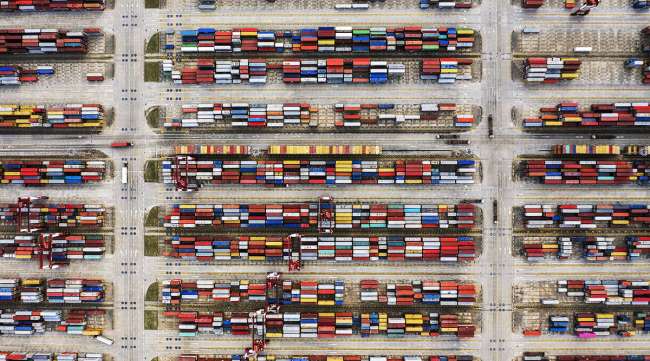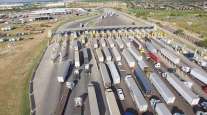Trade Deal Before Presidential Election May Suit Beijing

[Stay on top of transportation news: Get TTNews in your inbox.]
Timetables can be fascinating, especially when those used by the leaders of the world’s most powerful countries appear to be vastly different.
President Donald Trump tweeted this week that any trade deal China might secure from America would get “much tougher” upon his re-election. The insinuation being of course that Beijing should really work something out before November 2020.
That same day, Xi Jinping told a gathering of Communist Party officials in Beijing that the challenges facing China will only get more complicated and that these struggles may persist through at least 2049.
Based on those two data points, it would seem the gap between Trump and Xi is about 30 years wide. Though maybe it’s smaller.
“China is eating the Tariffs.” Billions pouring into USA. Targeted Patriot Farmers getting massive Dollars from the incoming Tariffs! Good Jobs Numbers, No Inflation(Fed). China having worst year in decades. Talks happening, good for all! — Donald J. Trump (@realDonaldTrump) September 6, 2019
Political continuity and long-term planning often are cited as being among China’s strengths. It also has led many to suspect Beijing’s ultimate strategy is to wait Trump out and look to deal with a new administration.
But just as Trump has an election looming, Xi, too, has other considerations he must balance. The economy is an obvious one.
Chinese growth rates are slowing, and the outlook is for that to continue. A number of economists cut their forecasts for 2020 this week after new tariffs took effect Sept. 1.
Not only would a trade deal buttress growth, it would give Beijing the breathing room it needs to deal with the country’s myriad other economic headaches. Dangerous levels of debt, strains in the banking system and a bubbly housing market are a few of them.
And even if China waits out Trump, there’s no guarantee a new administration would be any easier to deal with. Ultimately, there are plenty of reasons why a deal before November 2020 would suit Beijing just fine.
“U.S. Winning Trade War With China In Dollars.” CNBC — Donald J. Trump (@realDonaldTrump) September 4, 2019
Hong Kong
Chief Executive Carrie Lam made her biggest concession yet to protesters who have rocked the city with sometimes violent demonstrations for the past three months. She announced this week that proposed legislation allowing extradition to China, the issue that sparked the unrest, was being formally withdrawn. Hong Kong’s stock market reacted to the news with its biggest surge since 2011, but it didn’t satisfy many protesters, who called Lam’s move too little, too late. With more demonstrations called for this weekend, we should have a better grasp by Sept. 9 on how much — if at all — closer the situation has moved toward resolution.
Huawei Counters
The Chinese tech giant struck back against Washington this week by levying a litany of allegations against the U.S. government. Huawei’s claims included assertions that federal agents have been sent to its employees’ homes and even impersonated staff to try to entrap those working for the company. The stakes are high for Huawei, which said last month its mobile phone unit might lose $10 billion of business because of restrictions on what American technology it can buy. Its lead in 5G wireless equipment also is under threat as the U.S. pushes allies to ban its gear.
Pork Prices
In a sign of how much havoc African swine fever is beginning to wreak in China, the city of Nanning began limiting not only the price at which pork can be sold, but also how much each customer can buy. Because it is a staple of most Chinese dinner tables, the price and availability of pork can be a sensitive issue. That can help explain why it now appears that local governments may have been keeping Beijing in the dark about how serious the problem was. Vice Premier Hu Chunhua, who also is a member of the 25-member Politburo, late last week called the situation “much grimmer than we have been informed.”




